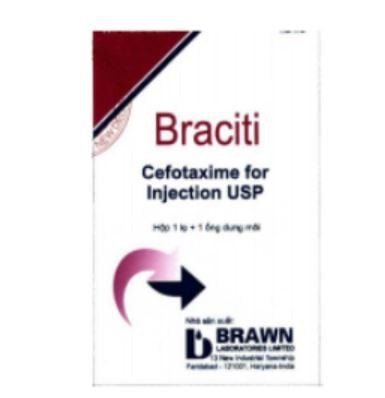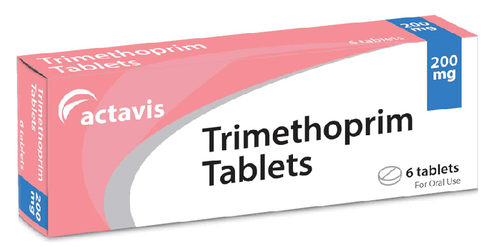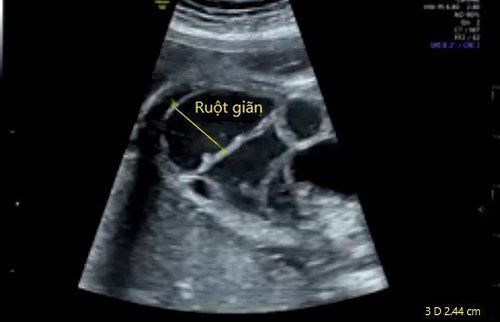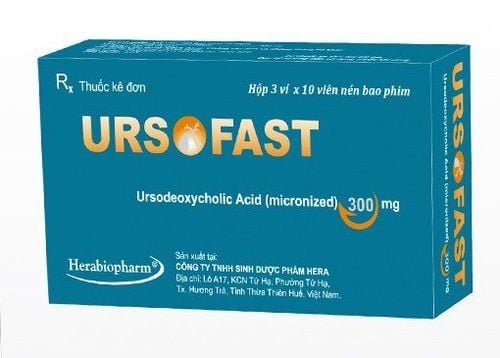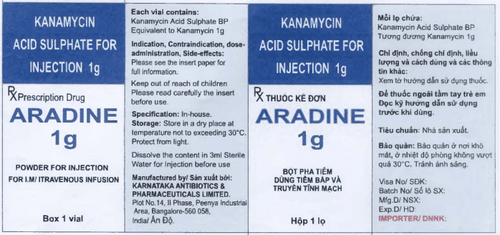This is an automatically translated article.
Ciforkid is used in the treatment of infections caused by pathogens sensitive to Ciprofloxacin. The drug is also chosen for prophylaxis in cases of high risk of infection such as laparoscopic surgery, intestinal surgery.1. Ciforkid drug effects
Ciforkid drug belongs to the group of anti-parasitic, anti-infective, anti-fungal and anti-viral drugs. The drug contains the main ingredient is Ciprofloxacin 250mg and other active ingredients and excipients with sufficient drug content.
Ciforkid drug is indicated in the following cases:
Treatment of infections that are caused by pathogens sensitive to Ciprofloxacin such as: Bone and joint infections, biliary tract infections, ear, nose and throat infections and eyes, intestinal infections, skin and soft tissue infections, gonorrhea, intra-abdominal, uterine and ovarian infections, respiratory tract infections, urinary tract infections with or without complications. The drug is also selected for prophylaxis in cases of high risk of infection such as laparoscopic surgery, intestinal surgery. For children aged 1 to 17 years, Ciforkid is the 2nd or 3rd choice for complicated urinary tract infections and pyelonephritis. For children aged 5-17 years, Ciforkid is used to treat cystic fibrosis with severe acute pneumonia caused by P.aeruginosa.
2. Dosage and how to take Ciforkid
Usual Ciforkid dose for children:
Ciforkid dose 10-20 mg/kg every 12 hours (maximum dose: 750 mg/dose). The usual dose of Ciforkid for adults:
Mild - moderate infections: Use a dose of Ciforkid 250 - 500 mg, 2 times a day. Severe infections - complications: Use Ciforkid 750 mg, twice a day. Use from 5 to 10 days. Dose for patients with liver and kidney dysfunction:
People with impaired renal function: Creatinine clearance < 20ml/min or serum creatinine concentration > 3mg/100ml use a dose of 2 x half a unit of normal dose/day or 1 x 1 normal dose/day. Patients with impaired renal function and on dialysis: The dose is similar in subjects with impaired renal function. Decreased renal function and peritoneal dialysis in outpatients: Add Ciforkid as an infusion solution to the dialysate at a dose of 50 mg/L of dialysate, administered 4 times a day, every 6 hours. If Ciforkid is a film-coated tablet, take a dose of 1 x 500mg film-coated tablet or 2 x 250mg. Divide 4 times/day, every 6 hours. Dosage of Ciforkid in people with reduced liver function:
No dose adjustment of Ciforkid is required. Patients with reduced liver and kidney function:
Dosage of Ciforkid is similar to the case of decreased renal function. However, serum concentrations of Ciprofloxacin should be determined if possible. How to take Ciforkid:
Take the whole Ciforkid tablet with a little water, regardless of meal time. If Ciforkid is taken on an empty stomach, the active ingredient may be absorbed more quickly.
3. Contraindications to the use of Ciforkid
Do not use Ciforkid in cases of hypersensitivity to Ciprofloxacin or other Quinolones or any of the excipients contained in the drug. Ciforkid and Tizanidin should not be used concurrently.
4. Drug interactions
Ciforkid interacts with the following other drugs:
Agomelatine; Amifampridine drug; Cisapride drug; Dronedarone drug; Lomitapide drug; Mesoridazine; Pimozide drug ; Piperaquine; Sparfloxacin; Thioridazine drugs; Tizanidine.
5. Side effects of Ciforkid
Ciforkid drug can cause side effects for patients such as:
Bacterial and parasitic infections: Superficial fungal infections, oral thrush, vaginal thrush, gastrointestinal thrush. Hematologic and Lymphatic System: Eosinophilia, anemia, granulocytopenia and thrombocytopenia, leukocytosis and thrombocytopenia, hemolytic anemia, agranulocytosis, leukopenia and bone marrow suppression (threatening) live). Immune system: Allergic reactions, edema, dyspnea, hypersensitivity reactions, anaphylaxis, serum sickness-like reactions. Metabolism and nutrition: Anorexia, hyperglycemia Psychiatric and nervous system: Headache, dizziness, insomnia, taste disturbance, confusion, paresthesia, convulsions, decreased sensation, somnolence, weakness muscle, seizures, abnormal movement, psychosis, increased intracranial pressure, ataxia, increased blood pressure, olfactory disturbances, migraine headaches, loss of taste. Eyes: Vision disturbance, double vision, color disorder Ear and inner ear: Tinnitus, temporary deafness Cardiovascular: Tachycardia, vasodilation, hypotension, shock, vasculitis Gastrointestinal: Nausea, diarrhea, vomiting, abdominal pain, dyspepsia, flatulence, dysphagia, pseudomembranous colitis, pancreatitis. Hepatobiliary: Increased bilirubin, liver failure, jaundice, hepatitis, hepatocellular necrosis, hepatitis Skin and subcutaneous tissues: Rash, pruritus, urticaria, photosensitivity, erythema multiforme, erythema nodosum, Stevens-Johnson syndrome, toxic epidermal necrolysis, hemorrhage. Musculoskeletal system: Arthralgia, myalgia, arthritis, hypertonia, cramps, muscle weakness, tendinitis, tendon rupture, severe myasthenia gravis. Kidney and urinary: Kidney damage, renal failure, hematuria, nephrolithiasis, interstitial nephritis Tests: Increased SGOT index, increased SGPT, abnormal liver function, increased alkaline phosphatase, increased creatinine, increased urea, abnormal prothrombin, increased amylase, increased lipase. Note to use Ciforkid drug in the following cases:
Stop taking the drug and tell your doctor immediately if you have hypersensitivity, allergic reactions, seizures and previous neurological disorders, mental disorders, depression sensation, inflammation or pain in the extremities or photosensitivity. When using Ciforkid, you should drink enough water and avoid sunlight or ultraviolet rays. Ciforkid should be used with caution in the elderly, in patients taking corticosteroids, or in those with glucose 6 phosphate dehydrogensae deficiency or a family history of this condition. If diarrhea is severe and persists during or after treatment with Ciforkid, the patient should consult a doctor. Ciforkid may temporarily increase transaminases, alkaline phosphatase or cholestatic jaundice, especially in patients with pre-existing liver damage. In children, the indications for the use of Ciforkid are limited, so they must absolutely follow the doctor's instructions. For people who drive and operate machines, Ciforkid may affect the ability to concentrate, especially when alcohol is used. Pregnant and lactating women should not use Ciforkid. Above is information about Ciforkid drug, patients need to carefully read the instructions for use, consult a doctor before using. When the drug is no longer in use, it should be collected and disposed of according to the manufacturer's instructions.
Please dial HOTLINE for more information or register for an appointment HERE. Download MyVinmec app to make appointments faster and to manage your bookings easily.





